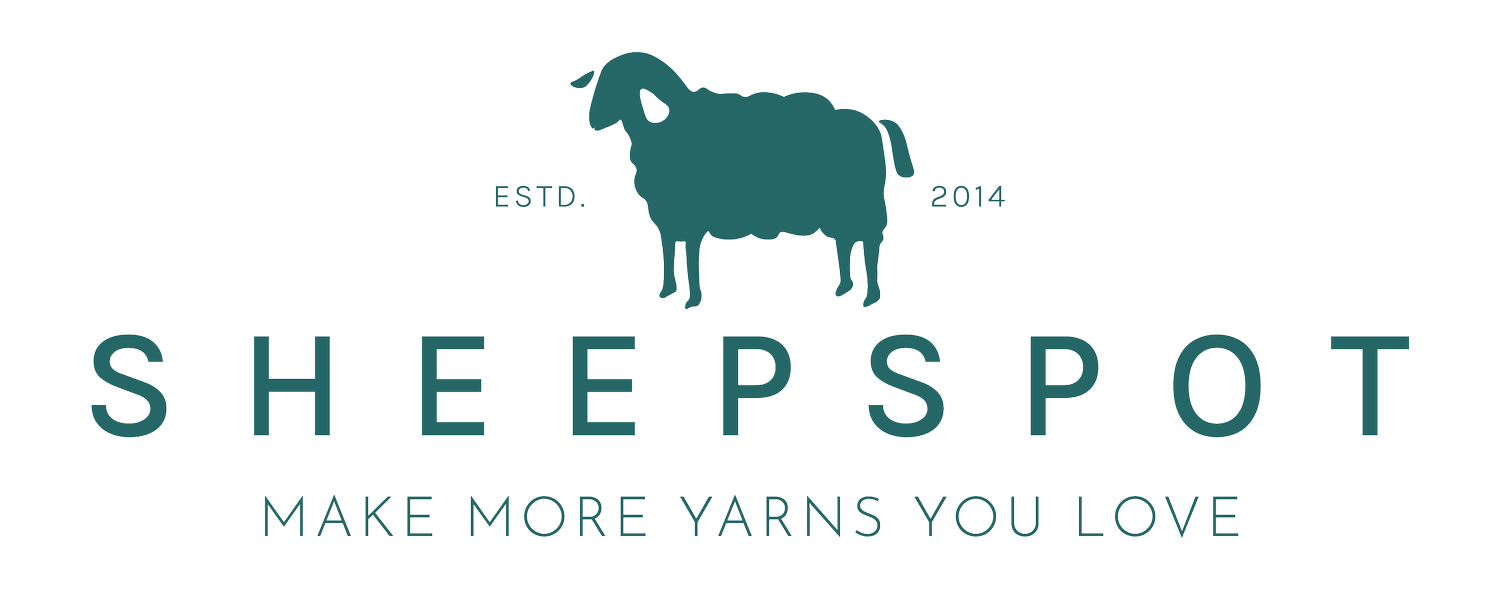5 reasons to start a breed study now
A Jacob lamb from Cindy Ghent's flock here in Ontario.
It makes you a better spinner.
We all get into ruts in our spinning, making the same yarns over and over again. Spinning teachers call these ruts "default yarns." Mine is two-ply, about a dk weight, spun short forward draw with twist between my hands. It's an easy, fast spin that I don't have to think about very much.
But if my experience is any guide, spinning the same yarns doesn't make us better spinners. Every aspect of my yarns improve when I force myself out of my rut and try new things, whether they're new techniques or new fibers.
There is an astounding range of breeds of sheep, and they grow an equally astounding range of wools. And each of them is best spun a little differently. That's how breed study makes you a better spinner: by giving your brain and your hands new materials to work with and new problems to solve.
As a spinner, it dramatically increases the range of yarns you can make.
Want elasticity? Choose a down breed, like Suffolk or Dorset Down. Want drape and sheen? Choose a longwool like BFL or Teeswater. Want something that won't make your neck itch? Choose a fine wool, like Cormo or Rambouillet. Want to spin a marled yarn in soft natural colors? Choose Jacob or CVM.
As a fiber artist, it lets you use precisely the right tool for the job. Every time.
If you walk into a yarn store, you're likely to find two kinds of wool yarns: the ones labeled "Merino" and the ones that give no indication at all as to the breeds that grew the wool (and usually no indication of where the yarn was made, or how, but that's a topic for another day). But as a spinner with knowledge of wool types and the breeds that grow them, you can match the yarn you make to the project you envision, with a precision non-spinners can only dream of. You can control both the hand of the yarn and how durable it is through your choices of fiber and technique. As spinning teacher Maggie Casey always says, with a twinkle in her eye, "Spinners can be the ultimate control freaks!"
It connects you to the real source of your materials. And it's not your LYS.
Spinning for a breed study links you to the shepherds who raise the sheep and the flocks that grow the wool. For those of us who want to live—and craft—in ways that acknowledge and celebrate our interdependence with the natural world, working with wool and other natural fibers can be a deeply satisfying part of making.
It ensures that those materials continue to exist
Breed study will require you to use kinds of wool that are likely not widely available commercially. So if you think that small, sustainable agriculture is important, or if you want to support North American mills and processors, breed study can be a great way to put your money where your mouth is.
In addition, breed study will likely lead you to rare and endangered breeds, precious resources with wonderful characteristics that, for one reason or another, have been passed over by large-scale agribusiness. These rare breeds are the living repositories of genetic resources that may be crucial to us in the future. (To read more about threats to genetic diversity in livestock animals, see my posts here, here, and here.
As Deborah Robson and Carol Ekarius note in The Fleece and Fiber Sourcebook, "in order to continue to have these irreplaceable resources available for our pleasure and delight, we need to support the living infrastructure of animals and people that makes their existence possible."
Word.
What's stopping you?
Breed study usually means buying raw fleece. And that can be a daunting prospect. Where do you find the fleece? How do you know that it's high quality? How do you wash it without felting it?
Then there's the preparation. Do you have hand cards? Combs? A flick carder? Are your tools appropriate for the kinds of fleece you have? Do you know how to use them?
And do you have time for all this?
Breed study in the past has been expensive and time-consuming. Because I feel so passionate about its importance, though, I've come up with another way: the Sheepspot Fiber Club.
It's breed study without the prep, for committed spinners who just don't have the time to work from fleeces. Members get wool from a new breed every other month, complete with information about the breed's history, characteristics, and wool. I also spin every fiber myself in lots of different ways, and include detailed sampling notes (about wheel setup, drafting technique, and which yarns I liked best) with each shipment to help you get started with the fiber.
Memberships go on sale June 22. You can find complete details about the club, including prices and options (and there are lots of 'em) here. Be sure to sign up to get an email reminder so you don't miss out.
